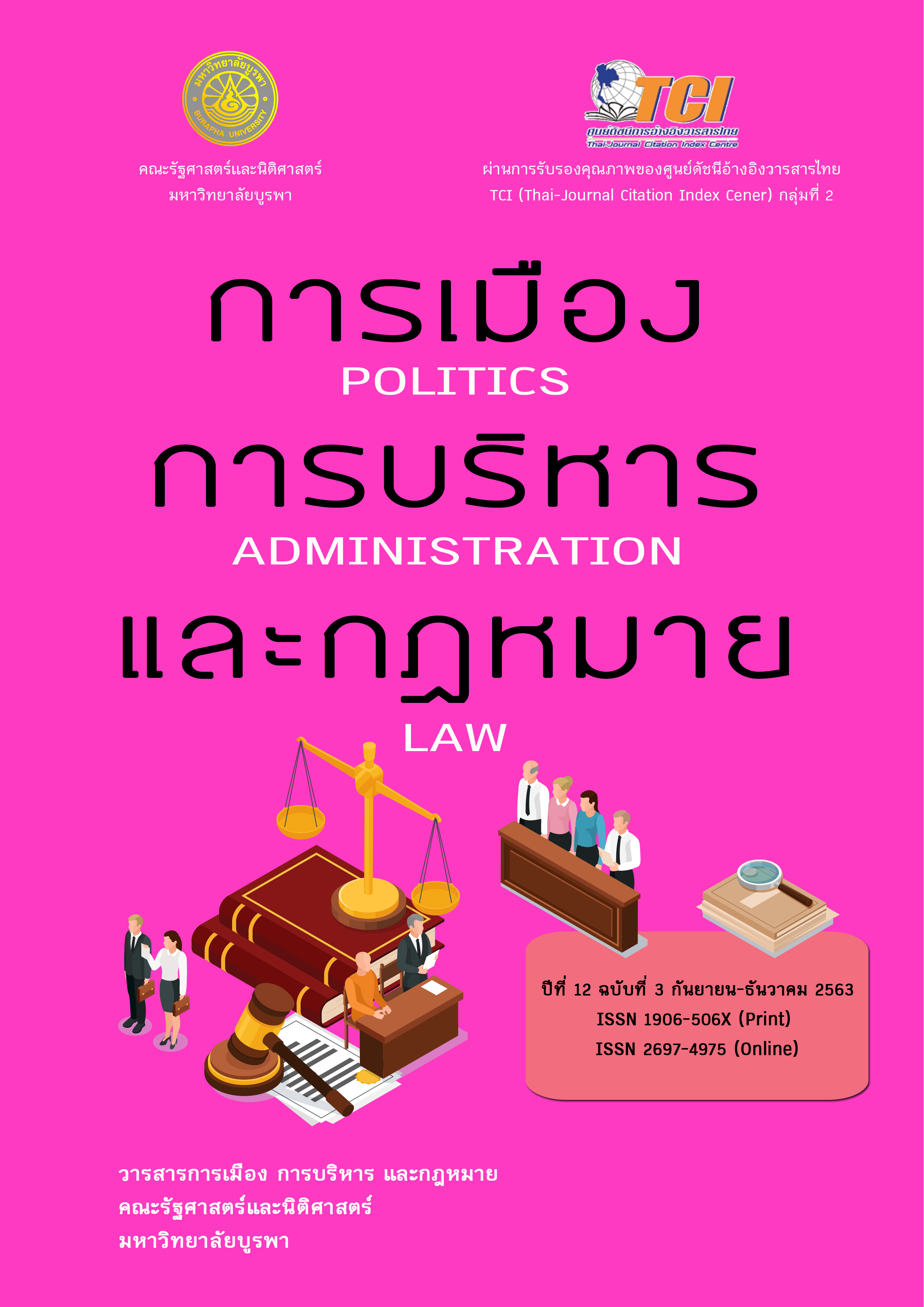ปัจจัยที่ส่งผลต่อขีดความสามารถในการแข่งขันที่ยั่งยืนของประเทศไทย
คำสำคัญ:
ปัจจัย, ขีดความสามารถในการแข่งขันที่ยั่งยืนบทคัดย่อ
วัตถุประสงค์ 3 ประการของงานวิจัยนี้คือ 1) เพื่อศึกษาขีดความสามารถในการแข่งขันที่ยั่งยืนของประเทศไทย 2) เพื่อค้นหาปัจจัยที่ส่งผลต่อขีดความสามารถในการแข่งขันที่ยั่งยืนของประเทศไทย และ 3) เพื่อค้นหาแนวทางเพื่อการพัฒนาขีดความสามารถในการแข่งขันที่ยั่งยืนของประเทศไทย งานวิจัยนี้อาศัยการวิจัยแบบผสม ทั้งในเชิงคุณภาพและเชิงปริมาณ ในเชิงคุณภาพประกอบไปด้วยการสัมภาษณ์เชิงลึกกับผู้เชี่ยวชาญรวม 17 ท่านในช่วงแรก และการนำเสนอต่อผู้เชี่ยวชาญอีก 22 ท่านในการสนทนากลุ่มเพื่อแสดงความเห็นก่อนสรุปผลการวิจัยในช่วงท้ายของการวิจัย ในเชิงปริมาณ มีการเก็บตัวอย่างการสำรวจจากผู้ให้ความคิดเห็นรวม 390 ท่าน ข้อมูลที่ได้ทั้งหมดได้ถูกนำมาประมวลและทำการวิเคราะห์ แบบอุปนัยสำหรับข้อมูลเชิงคุณภาพ ทั้งการสัมภาษณ์เชิงลึกและการสนทนากลุ่ม และแบบสถิติศาสตร์สำหรับข้อมูลเชิงปริมาณ ทั้งสถิติเชิงบรรยายและสถิติอนุมานอันประกอบไปด้วยการหาความสัมพันธ์ทางสถิติแบบสหสัมพันธ์ และการวิเคราะห์การถดถอยพหุคูณโดยวิธีเพิ่มตัวแปรอิสระแบบขั้นตอนเพื่อระบุตัวแปร ซึ่งก็คือปัจจัยที่ส่งผลต่อขีดความสามารถในการแข่งขันที่ยั่งยืนของประเทศไทย รวมทั้งลำดับความสำคัญของตัวแปร ผลการวิจัยในทุกรูปแบบล้วนสอดคล้องและยืนยันว่า 1) ขีดความสามารถในการแข่งขันของประเทศไทยอยู่ในระดับต่ำอันเนื่องมาจากการขาดการมุ่งเน้นและการประเมินคุณค่าทางเศรษฐกิจ ทางสิ่งแวดล้อมและทางสังคมโดยตรง 2) ปัจจัยที่ส่งผลต่อต่อขีดความสามารถในการแข่งขันที่ยั่งยืนของประเทศไทยประกอบไปด้วย (ก) การดำเนินนโยบายของประเทศ โดยมุ่งเน้นประสิทธิภาพ ประสิทธิผลและการปกครองภายใต้หลักธรรมาภิบาล (ข) การบริหารประชาชน โดยมุ่งเน้นความมุ่งมั่นและความรับผิดชอบ ความยืดหยุ่นและความว่องไว การกระตุ้นและการสร้างแรงบันดาลใจ และการสื่อสาร และ (ค) อิทธิบาท 4 หลักพุทธธรรมอันประกอบไปด้วย ฉันทะ วิริยะ จิตตะ และวิมังสา และ 3) แนวทางในการพัฒนาขีดความสามารถในการแข่งขันที่ยั่งยืนของประเทศไทยคือการบูรณาการอย่างแท้จริงของ 3 ปัจจัยที่กล่าวมา ทั้งนี้ จากผลการวิเคราะห์สหสัมพันธ์และการถดถอยพหุคูณโดยวิธีเพิ่มตัวแปรอิสระแบบขั้นตอน พบว่า การบริหารประชาชนเป็นหัวใจสำคัญที่สามารถนำพาให้ประชาชนที่มีคุณภาพอันมาจากการพัฒนาโดยอาศัยหลักอิทธิบาท 4 ให้กลายเป็นพลังขับเคลื่อนการดำเนินนโยบายของประเทศ โดยมุ่งเน้นประสิทธิภาพ ประสิทธิผลและการปกครองภายใต้หลักธรรมาภิบาล ประเทศไทยจึงจะสามารถพัฒนาขีดความสามารถในการแข่งขันที่ยั่งยืนได้สำเร็จ
เอกสารอ้างอิง
Bris, A., & Cabolis, C. (2019). IMD World Competitiveness Ranking 2014-2019. Lausanne: IMD World Competitiveness Center.
Casidine, M. (1994). Public Policy: A Critical Approach. Sydney: Macmillan Education Australia.
Dye, T. R. (1972). Understanding Public Policy. New York: Englewood Cliffs: Prentice-Hall.
Lowi, T. J., Bauer, R. A., De Sola Pool, I., and Dexter, L. A. (1964). American Business, Public Policy, Case-Studies, and Political Theory. World Politics, 16(4), 687–713.
The World Bank. (2019). Doing Business 2019 – Thailand. New York: A World Bank Group Flagship Report, 16th Edition.
TMA. (2019). Thailand Competitiveness Enhancement Program 2014-2019. Bangkok: Thailand Management Association – Center for Competitiveness.
White, R. W. (1959). Motivation Reconsidered: The Concept of Competence. Psychological Review, 66(5), 297-333.






